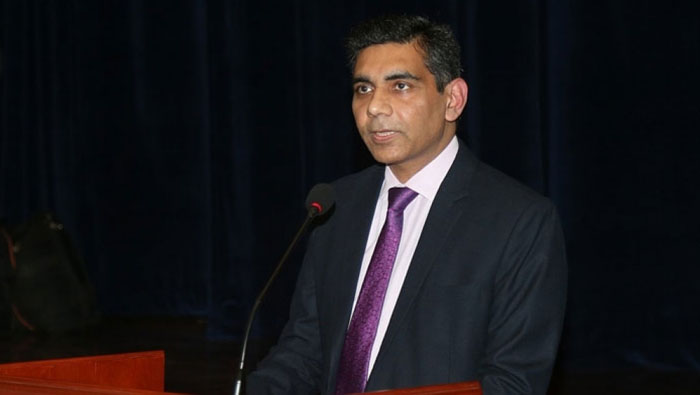
Muscat: Indian expats leaving Oman have been invited to apply for jobs created by their country’s government as part of its efforts towards self-sufficiency.
The Atmanirbhar Bharat Abhiyaan or Self Reliant India Movement was launched by Indian Prime Minister Narendra Modi to help overcome issues in the supply of goods that many countries have faced during the ongoing COVID-19 pandemic, to ensure it is able to manufacture and procure much of what it needs within the country.
This aims to stimulate economic growth and provide jobs to tens of thousands of Indians.
Munu Mahawar, the ambassador of India to Oman, has asked his countrymen in Oman to provide the skills they have put to use in the Sultanate, to companies back home.
“I invite Indian nationals in Oman to be a part of this movement and contribute to the efforts for the realisation of vision of a self-reliant India,” said the ambassador. “There are many ways in which they can contribute. Apart from direct investments, their skills, experiences and linkages are of immense value. They can also act as a bridge to strengthen the relationship between India and Oman.
“I also invite our Omani friends to participate in this initiative,” he added. “India’s growth will create huge new opportunities from which Omani companies can also benefit. The embassy remains available to extend its full support.”
“The Indian economy is growing and the self-reliant India initiative seeks to further accelerate this growth,” said Mahawar.
“As the economy grows, more jobs will get created. Further, our objective is to make the nation and our economy more resilient. The government is doing skill-mapping of all the returnees so that they can be suitably employed.”
This skill-mapping measure – known as SWADES (Skilled Workers Arrival Database for Employment Support) – was set up to find suitable work for Indian nationals coming home at short notice during the COVID-19 pandemic, many of whom had been dismissed from their jobs overseas because of the impact of the disease.
The country’s self-sufficiency drive, said the Indian envoy, was the latest in a number of initiatives reportedly set up by the Indian government to address the issue of unemployment and ensure people had the skills and resources to remain self-sufficient.
“Under the Skill India Mission, our approach is to skill, re-skill and up-skill the population so that they can respond to the changing requirement and find opportunities for employment,” explained Mahawar.
“Besides this, a major scheme, MUDRA, has been launched under which people can receive financial support to start their own businesses,” he added.
“More than 11 million jobs were created by this scheme in the initial years of its operation. The new education policy also places special emphasis on vocational education.”
India’s National Education Policy, which was also announced this year, was set up with the intention of bringing the Indian academic system more in line with international curricula, providing students a diversified range of subjects, putting more emphasis on vocational training and soft skills and providing more flexible learning options to suit the needs of students, as part of a series of sweeping reforms that plan to modernise the country’s education system.
“A self-reliant India does not mean that we will become isolationist or cut-off our linkages with the world,” explained Mahawar. “On the contrary, a self-reliant India will work closely with its friends and partners and strengthen global linkages. We welcome investment and technology partnerships.
“Together, with mutual trust, we grow and prosper. India will continue to engage closely with the world,” he said. “We will also continue to support our friends and partners in their developmental efforts.”